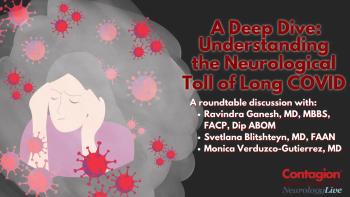
Despite advances in understanding and treating Long COVID, many questions about its mechanisms, susceptibility, and varied recovery patterns remain unresolved, underscoring the need for continued research.
Isabella Ciccone, Assistant Editor, NeurologyLive®, has been with the team since September 2022. Follow her on Twitter @iciccone7 or email her at iciccone@mjhlifesciences.com

Despite advances in understanding and treating Long COVID, many questions about its mechanisms, susceptibility, and varied recovery patterns remain unresolved, underscoring the need for continued research.

Clinicians discussed the complexities of diagnosing Long COVID, emphasizing the need for improved biomarkers and diagnostic technologies to better serve affected patients.
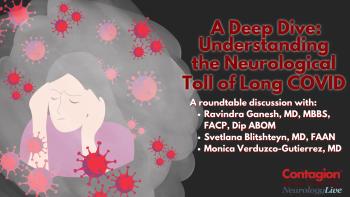
Without a specific tailored Long COVID therapy, individualized treatment based on patient phenotypes, along with extensive evaluations, is essential for effective symptom management.
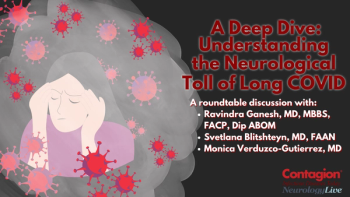
In our latest roundtable series, experts highlighted research showing that even mild COVID can result in cognitive impairment including brain fog and IQ decline.

In our latest roundtable series, the discussion addressed Long COVID prevalence, underreporting, accurate diagnosis, and emphasized that Long COVID serves as an umbrella term.

A recent study showed that an increase in anti-hepatitis E virus seroprevalence in patients with chronic inflammatory demyelinating polyneuropathy was not a consequence of intravenous immunoglobulin therapy.
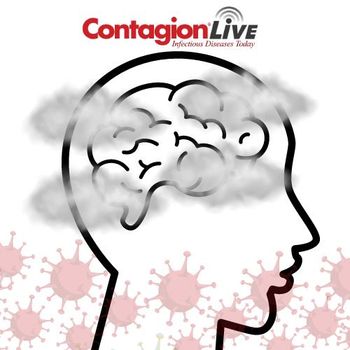
Recent data and conversations with experts highlighted the increasing concern of Long COVID’s impact on the brain in patients who have been previously infected with the virus.
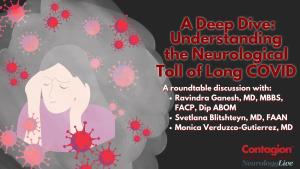
Published: November 1st 2024 | Updated:

Published: October 11th 2024 | Updated:

Published: October 18th 2024 | Updated:

Published: November 8th 2024 | Updated: